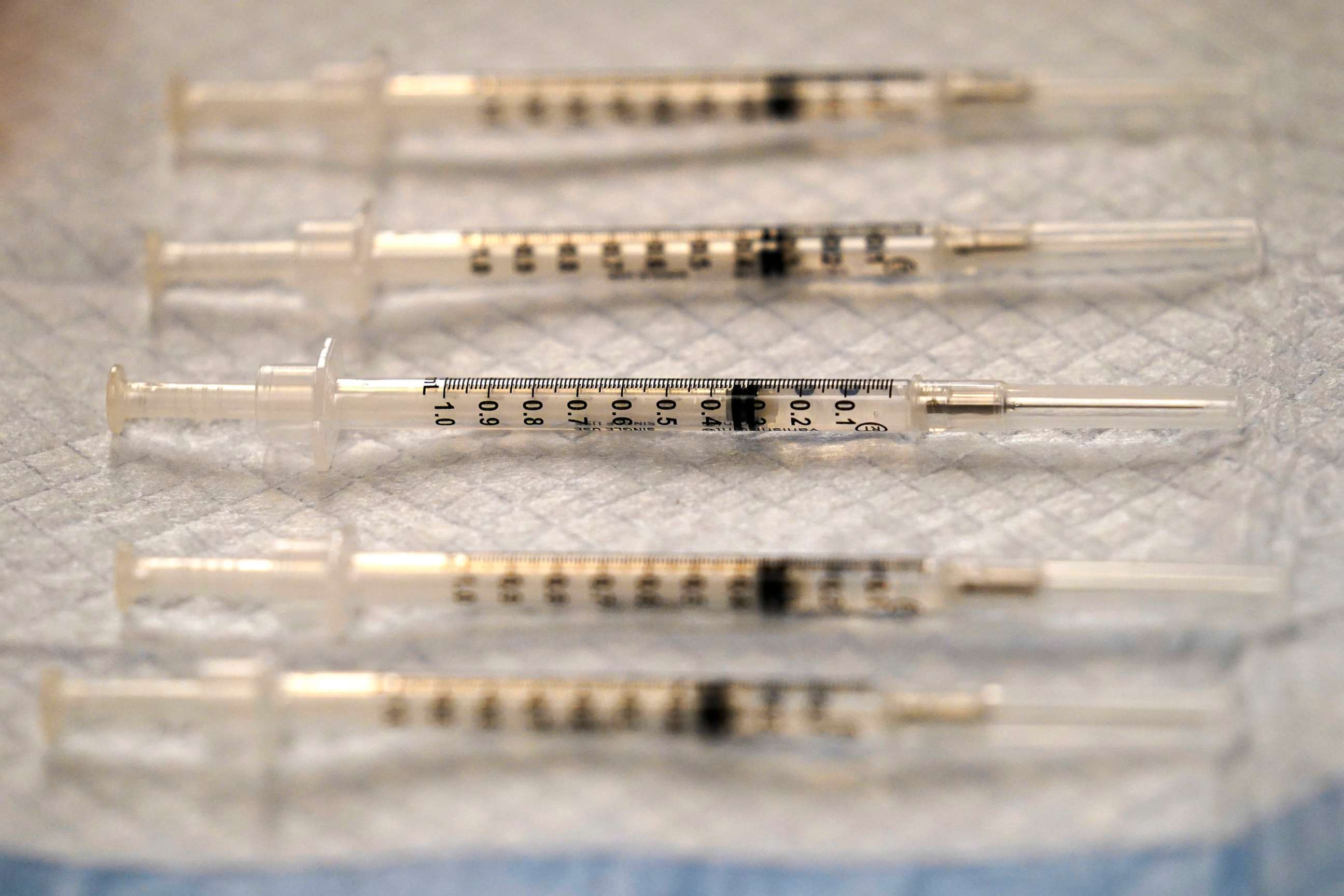CDC issues new guidance on vaccinations for people with underlying health conditions
The Centers for Disease Control and Prevention updated its guidelines for people with underlying health conditions planning to take a COVID-19 vaccine.
They CDC said that adults with underlying medical conditions -- who are more at risk of becoming seriously ill from COVID-19 -- can receive a vaccine against the virus as long as they have not had a severe allergic reaction to any of the ingredients in it.

The new guidelines state that people with HIV and those with weakened immune systems due to other illnesses or medication should be aware that information about the safety of COVID-19 vaccines for their group is not yet available. While people with HIV were included in clinical trials, more data is required to provide safety guidelines regarding the effects a vaccine could have on them. The same is true for people with autoimmune conditions.
People who have previously had Guillain-Barre syndrome or Bell’s palsy may receive a COVID-19 vaccine, though experts are still acquiring more data about their groups as well.
The CDC added that people should continue to follow coronavirus health measures -- such as wearing a mask and staying 6 feet away from others -- after receiving the shot, as experts have more to learn about the protection that COVID-19 vaccines provide under real-life conditions.




